Helpful Tips for Planning Your Next Road Trip
With air travel becoming increasingly more expensive and stressful, travelers around the world are opting for road trips to explore their own home countries and surrounding regions. Road trips offer so much more in terms of freedom and flexibility and often allow you to take in many more landmarks and attractions while also providing you with more rewarding experiences.
Whether you’re thinking about planning a camping road trip that will take you through adventurous national parks or simply want to check out a bunch of major cities, there are several ways you can make your next road trip safer and more enjoyable.
We have put together a collection of our top road trip tips that will provide you with just about everything you’ll need to know to get you from point A to point B safely, collecting memorable experiences and having fun along the way. Planning a road trip doesn’t have to be overwhelming. Simply put these helpful tips to practice the next time you hit the open road.


Tips for Planning the Perfect Road Trip
Packing Tips
Like air travel, road trips require you to put some thought into what you need to pack. Of course the benefit of traveling on four wheels is that you’re not nearly as restricted in what or how much you can bring along. Instead of having to cram everything into a suitcase and small carry-on, you have a large trunk and possibly back seats at your disposal. That doesn’t mean you should load up on useless supplies, as nonessential gear will only decrease your fuel economy and make you feel cramped. So what should you pack?
Useful tips at Outdoorcommand recommend that you make a list of all the items you might need and then use that as a checklist to make sure you pack all the essentials you may need during your road trip. It is a good idea to start packing for your road trip a few days ahead of time so you can be assured of including all the required items. Rushing your packing only promotes a stressful start to your trip and can often leave you forgetting items or with the inability to purchase last minute items that you realize you don’t have on hand.
The first thing you should pack is a break down kit with the tools you’ll need to perform basic maintenance. Without a working car, you won’t be going anywhere. Always carry your vehicle’s handbook which can guide you through how to make minor repairs such as changing a tire. Pack jumper cables in case you end up with a flat battery during your travels.
Pack a cooler with plenty of water and food to get you by until you reach each stop, being sure to plan for unexpected events such as break downs in remote locations. If you plan on camping, be sure check that your tent has all its pieces and that you have all your camping gear such as sleeping bags, cooking utensils, etc.
Pack enough clothes to get you through your trip unless you plan on doing laundry along the way and be sure to pack all your required medications and toiletries. Yes you can purchase things along the way, but this will only take away precious time from your exciting travels. If you plan on making a lot of stops during your daily driving, it pays to pack a day bag or backpack that you can quickly grab and take with you when hiking or exploring city streets.
Be sure to carry enough cash in addition to credit cards, as some gas stations in rural areas and places like national parks may not accept credit. Remember to also save room in your vehicle in case you make any souvenir purchases along the way.
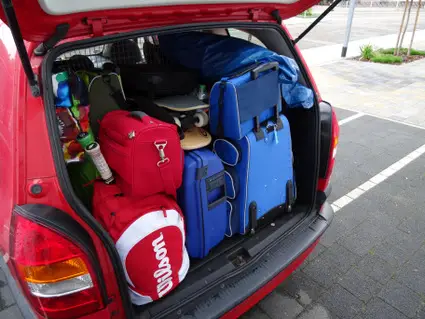
Choosing the Right Vehicle
Having the right vehicle is obviously important to any successful road trip. You may not have a whole lot of choice when it comes to what vehicle you decide to take, as not many of us have a large selection of personal cars to choose from. Many families will of course have a few vehicles to choose from. While it may seem like you should take the largest vehicle you own, you may want to opt for your smaller, more fuel efficient car if you don’t plan on needing a lot of space. SUVs on the other hand are great for camping trips and driving through rough terrain but aren’t necessary if you’re just planning on traveling through big cities and using highways and paved roads.
If you don’t own the right vehicle for the road trip you are planning, it may be a wise decision to simply rent the required vehicle, making sure that you remember to take out appropriate insurance in case of an accident. Whether you’re looking to hire a party bus traveling to Lubbock, Texas for a bachelor/bachelorette party road trip or looking to rent a hummer for some adventurous back road driving in and around the Grand Canyon, you’ll find it quite easy to hire whatever vehicle is most suitable for the road trip you are planning.
It is also a great idea to give your vehicle a good clean before setting out on a road trip. You’ll be in your car for a considerable amount of time, and being surrounded by trash, dust, and random unnecessary objects will only make things less enjoyable. It’s not a bad idea to throw a small garbage can in the car that you can use during your road trip to keep things tidy.
Make sure whichever vehicle you choose can safely accommodate you and everyone travelling with you. You don’t want anyone to be uncomfortable during long drives and the vehicle should be able to accommodate all your luggage and gear without it impeding on any passengers.
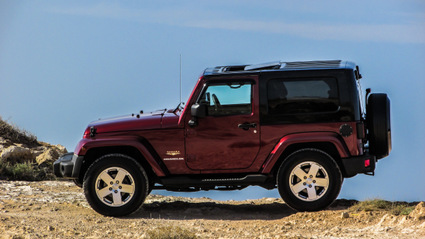
Have Your Car Serviced
It’s essential to check on your car, at least a week before you travel. Take your vehicle to your local mechanic to make sure it is suitable for a long road trip. Making sure that your car is in good working condition before your trip will go a long way to making sure you and your family or travel companions stay safe during your trip.
A car service should include getting your oil changed and topping up fluids such as brake, transmission, and windshield washer fluids. Be sure to have your windshield wipers checked as well, since having proper visibility in inclement weather is important for avoiding accidents. If you plan on going off-road or driving long distances on gravel, it pays to make sure your vehicle’s suspension, belts, and other mechanics are all working properly.
Your tires should have plenty of tread left on them and should be properly inflated. If they are old and worn, they really should be replaced before your trip. If your tires are too bald, they can be a huge safety risk and may even be illegal to drive on. To increase your vehicle’s traction in deeper snow, sand or ice, you can deflate the tires a bit to increase the amount of rubber that makes contact with the driving surface. If you plan on driving through heavy snow and ice, be sure to pack snow chains that can be fitted to your tires.
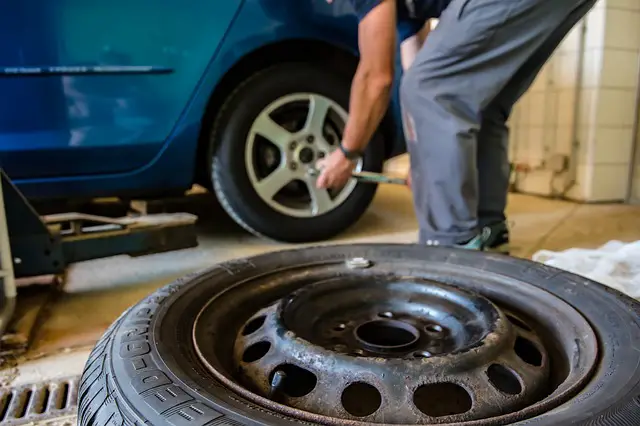
Planning Your Route and Stops
You may have a general idea of where you want to go for your road trip, but which roads or routes you choose can have a big impact on your overall experience. You want to select a route that appeals to everyone in your group. Your route should include a varied collection of stops and activities that caters to everyone’s distinct personalities.
After selecting a route, check for notable or exciting spots along the way. Whether it’s a museum or national park, planning out your stops ahead of time will allow you to better plan out each day. Google Maps is great for finding landmarks and attractions and gives you a very good idea of the time and distances it will take you to get between various locations.
Your itinerary should be flexible of course, since you may wish to make unexpected stops along the way and traffic accidents or roadworks may force travel delays. Always allow for changes in your plans, because unexpected events regularly occur during road trips.
Plan to do most of your driving during daylight, as the AAA Foundation for Traffic Safety has found that fatal crashes are four times likelier to happen at night. Be sure to also plan your route so that gas stations will be available along the way. The last thing you want is to run out of fuel and be stuck on the side of the road. Keep in mind that gas can often be more expensive in rural or remote areas, so it’s wise to fuel up in the cities when the opportunity arises. Carry a gas can with extra fuel when visiting areas where gas won’t be available and you’re worried about the possibility of running empty.
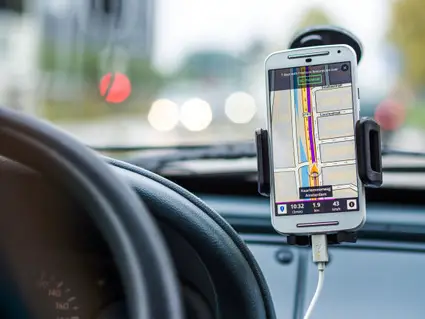
Budgeting for Your Road Trip
While road trips can often be much cheaper than flying internationally, they can still get costly if you don’t stick to a budget. When creating a budget for your next road trip, you need to factor in the cost of fuel, lodging, food, and excursions. If your budget is limited, visit areas closer to home that won’t require large amounts of fuel to reach or opt for a camping adventure to save on accommodation costs.
Book accommodation with cooking facilities or make sure to pack a camp kitchen to save on food costs, since eating out at restaurants can add up quickly. Purchase snacks and drinks at a local grocery store instead of at gas stations or touristy sites where prices are often much higher.
When it comes to excursions or activities, there are many free things to enjoy during a road trip. Hiking though local parks and reserves, walking along beaches, and simply walking through the streets of a new city are all low or zero cost activities. Don’t feel as though you have to visit all the recommended stops, especially if many of them carry high admission fees.
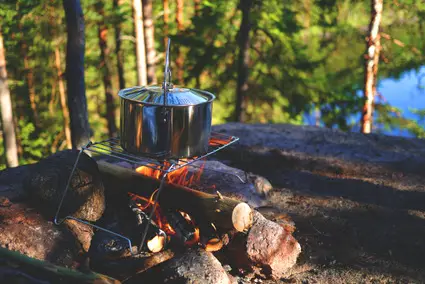
Entertainment
While road trips can be exciting, there is often a lot of down time in-between stops. Be sure to keep you and your family entertained by downloading plenty of music and maybe even an audio book or two. Carrying iPads or phones with games can go a long way to keeping children amused and less grumpy. That being said, try not to let your kids bury themselves in screens. Planning numerous stops will help to keep them engaged in the travel aspect of a road trip. It is a good idea to bring along guidebooks for the places you are travelling to, as everyone can read up about interesting facts and places during drives that you may want to check out.
It can also be fun to create family car games to keep your family engaged in the surroundings you drive through. Games like scavenger hunts where you all try to spot the most items on a specific list of things from the road can be fun and prizes can be given out to the winners each day. When it comes to events, activities, or attraction you want to visit along the way, it is always a good idea to book ahead. You don’t want to arrive at an attraction or event only to find out it’s closed or sold out.
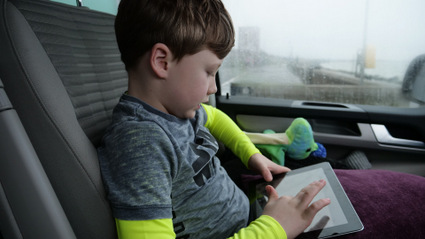
Planning for Weather
Road trips aren’t always full of sunshine and warm weather. It is important to prepare for any weather you may face, as driving through harsh weather or breaking down in harsh weather can have serious consequences.
Having enough gas in your tank is not only important for getting you places, it’s also vital for fueling your heat and air conditioning. This can be essential in cases where you break down in harsh environments.
Avoid driving in thunderstorms or snow storms. Checking the weather forecast will aid you in avoidance, but if you do get stuck in harsh weather while driving, simply pull over in a safe area. It’s not worth risking your lives to make it somewhere on time. When lightning is present, pull over when it is safe to do so and remain in the vehicle. Park under shelter if possible but avoid parking near trees that may attract lightning or fall on your vehicle. Always turn on your hazard lights as you wait out the storm.
Wet or icy roads require a greater stopping distance, so it is important to slow down and refrain from following too closely to another vehicle in such conditions. Driving at high speeds on wet roads can also lead to hydroplaning and you should never attempt to cross flooded roadways if you are not certian of the water depth.
Always be aware that temperatures can drop considerably in high altitudes, so always pack adequate clothing for the areas you will be driving to. And because water is crucial for survival, always have a stash of bottled water in the car in case it is needed.


Be Sure to Include Breaks
Driving forces you to constantly stay focused on the road and this can easily cause mental fatigue. It is important to consistently include breaks throughout your driving, for which it is recommended that you take at least a 15 minute break for every two hours of driving. Of course everyone is different and you may require breaks more often. Simply listen to your own body and take breaks when you feel sore or drowsy.
Driving for long periods without taking breaks leads to slower reaction times and the possibility of falling asleep at the wheel. It often only takes a split second of not concentrating on the road to cause or not be able to prevent an accident from happening.
Plan regular driver swaps to always make sure a fresh and alert person is at the wheel. Also think about the comfort of other passengers who may need to take bathroom breaks or may simply need to stretch. Be sure to stay well fed and hydrated whether you pack snacks or stop for food.
If you feel like you’re too tired to make it to your next planned stop, simply admit defeat and book a different nearby hotel or campsite. It isn’t worth risking lives to make a reservation. And remember that taking breaks isn’t only import for the driver and passengers of a vehicle, it’s also good for your vehicle. Taking regular breaks allows your vehicle a chance to cool down and possibly prevents your engine from overheating when driving in hot conditions.
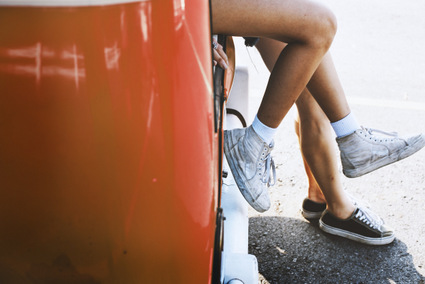




















October 13, 2019
I hope everyone makes sure to take the tip on getting your car serviced before you go. Trust me! My wife and I were stuck in a random New Mexico city with bad brakes for a whole day and missed out on some of our trip because of it.
October 16, 2019
Thanks to the great post by the author.. However i agree with Zach. We used to get our car serviced well before our trip starts. This would take care of the major break down that would happen in case.
November 26, 2021
Thanks for the great tips!